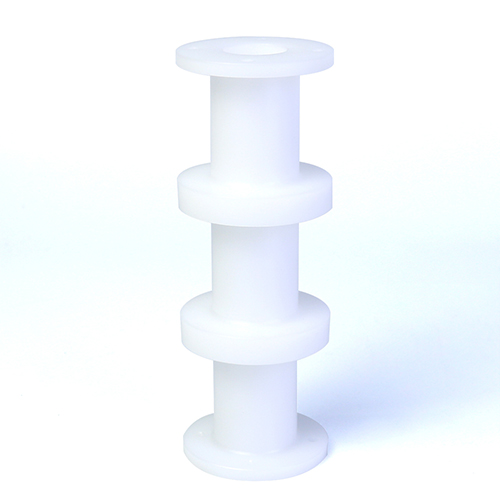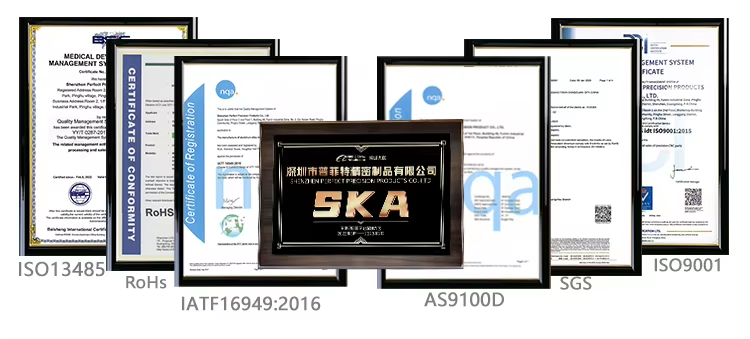Custom Medical Plastic Parts
Product Overview
In the world of modern healthcare, there’s no room for “one-size-fits-all.” Today’s medical devices need to be more precise, more functional, and often tailored to specific use cases—whether it’s a handheld diagnostic tool or an implantable device. That’s why custom-designed medical plastic parts are in such high demand.

Medical plastic parts are components made from biocompatible, sterilizable polymers used in a wide range of healthcare applications. These include:
● Surgical instruments
● Drug delivery systems
● Diagnostic housings
● IV components
● Catheters and tubing
● Implantable device housings
The materials used—such as PEEK, polycarbonate, polypropylene, or medical-grade ABS —are chosen for their durability, sterilization compatibility, and patient safety.
Off-the-shelf components may work for some general purposes, but in today’s competitive and regulated medical industry, custom plastic parts give manufacturers a major edge
1. Tailored to Functionality
Every medical device has specific performance requirements. A custom-designed plastic part can be engineered to fit exact geometries, interface with other components, or handle unique stress factors.
2. Optimized for Assembly
When parts are custom-built for your assembly line, you reduce fitting issues, lower the risk of error, and improve overall production efficiency.
3. Regulatory Compliance
Custom medical plastic parts are easier to qualify for FDA or ISO 13485 compliance when they’re engineered with the right materials and processes from the start.
4. Design for Sterilization
Not all plastics can handle steam, gamma, or chemical sterilization. Custom design ensures the part will survive its intended sterilization method—without warping or degrading.
Custom plastic parts are vital across nearly every medical field:
● Cardiology: Devices like pacemaker housings and delivery systems
● Orthopedics: Surgical jigs and disposable instrument handles
● Diagnostics: Cartridge systems for blood or fluid analysis
● General Surgery: Single-use components with ergonomic designs
Whether you’re building Class I disposables or Class III implantables, precision plastic parts designed for your application make all the difference.
Custom-designed medical plastic parts are no longer a luxury—they’re a necessity. As devices get smaller, smarter, and more integrated, the demand for precision plastic components will only grow.
If you’re in the business of saving lives or improving patient care, don’t settle for off-the-shelf. Design it right. Manufacture it right. Get it done right.
We are proud to hold several production certificates for our CNC machining services,which demonstrates our commitment to quality and customer satisfaction.
1、ISO13485:MEDICAL DEVICES QUALITYMANAGEMENT SYSTEM CERTIFICATE
2、ISO9001:QUALITY MANAGEMENT SYSTEMCERTIFICATE
3、IATF16949、AS9100、SGS、CE、CQC、RoHS
●Great CNCmachining impressive laser engraving best Ive everseensofar Good quaity overall,and allthe pieces were packed carefully.
● Excelente me slento contento me sorprendio la calidad deias plezas un gran trabajo This company does a really nice job on quality.
● If there is an issue they are quick to fix itVery good communication and fast responise times
This company always does what I ask.
● They even find any errors that we may have made.
● We have been dealing with this company for a number of years and have always recelved exemplary service.
● I am very pleased with the outstanding quality or mynew parts.The pnce is very competiive and the custo mer service is among the best Ive ever experienced.
● Fast tumaround rabulous quality,and some of the best customer service anywhere on Earth.
Q:How fast can I receive a CNC prototype?
A:Lead times vary depending on part complexity, material availability, and finishing requirements, but generally:
● Simple prototypes: 1–3 business days
● Complex or multi-part projects: 5–10 business days
Expedited service is often available.
Q:What design files do I need to provide?
A:To get started, you should submit:
● 3D CAD files (preferably in STEP, IGES, or STL format)
● 2D drawings (PDF or DWG) if specific tolerances, threads, or surface finishes are required
Q:Can you handle tight tolerances?
A:Yes. CNC machining is ideal for achieving tight tolerances, typically within:
● ±0.005" (±0.127 mm) standard
● Tighter tolerances available upon request (e.g., ±0.001" or better)
Q:Is CNC prototyping suitable for functional testing?
A:Yes. CNC prototypes are made from real engineering-grade materials, making them ideal for functional testing, fit checks, and mechanical evaluations.
Q:Do you offer low-volume production in addition to prototypes?
A:Yes. Many CNC services provide bridge production or low-volume manufacturing, ideal for quantities from 1 to several hundred units.
Q:Is my design confidential?
A:Yes. Reputable CNC prototype services always sign Non-Disclosure Agreements (NDAs) and treat your files and intellectual property with full confidentiality.













